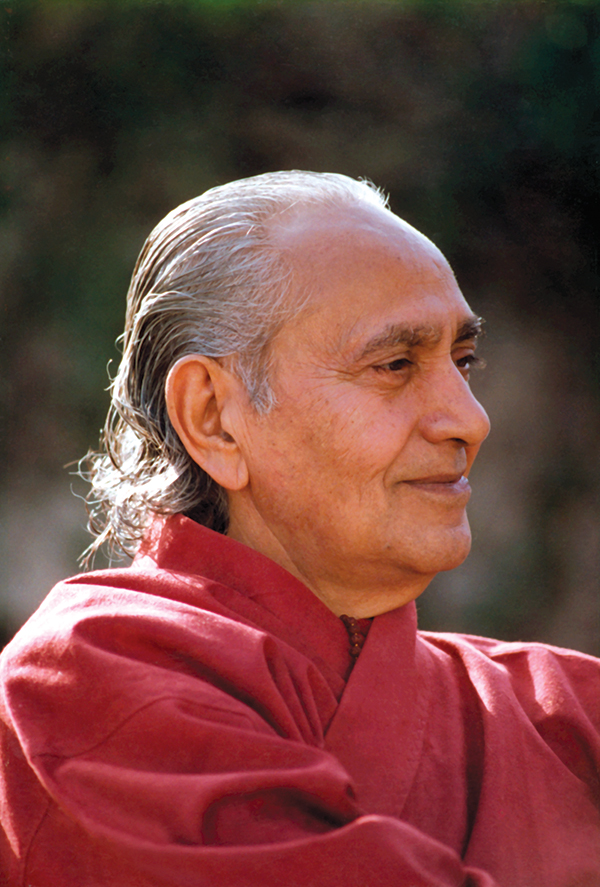Cultivating this enjoyment of serving others and doing our duties with love requires honesty and dedication. We must understand that doing our duties lovingly is, in itself, a spiritual practice. When we can cultivate this attitude, we fulfill our obligations and also free ourselves from the bondage of our individual egos, which only want to think of “I, me, and mine.” We begin to discover the joy of escaping from the prison of our own egos—and find delight and peace in serving those around us. Then, making the breakfast for our children becomes a spiritual practice, as does every loving and selfless act. Each act of loving service affirms our recognition of the Self within all. With this mindfulness we become transformed, and feel the sense of joy and peace that is meant to unite mankind.
All the great teachers and leaders practiced such selfless service—Christ, Buddha, Moses, Krishna, Guru Nanak, as well as the great teachers of the modern world, such as Schweitzer or Gandhi. They all did service. Thus, they dedicated their lives to serving others selflessly, without expecting any reward. All the great people of the world have been living examples of how to walk the path of karma yoga.
But on the smaller scale of our individual lives, we do not need to begin with grand acts of service to humanity or to strangers. We can begin, instead, with those who are closest to us, those who we have been given as our own companions on the spiritual path—our children, our partners, and our friends—those we claim to love.
Transforming Our Relationships
The biggest problem in the modern world is that many people are confused about the authentic meaning of love and how to fulfill their karmic duties in their marriages and relationships. If we forget the real purpose of these commitments, we become resentful and angry when our desires and expectations of the other person are not fulfilled. We become dependent and seek to lean on these little relationships for support. We expect our wives or husbands or children to make us happy by behaving the way our ego desires. We all want others to make us feel important, wise, and attractive. So we spend twenty to fifty years living together—expecting and demanding many things from each other—but this has nothing to do with experiencing our love and walking on the real spiritual path.
When we truly love someone, we love the light within that person. The process of enlightenment is the path of learning to appreciate the light within both ourselves and those we love, and seeking to allow the full expression of our Self as well as the Self of others. When we have expectations, we love only our little self, and we seek to gain others’ admiration of that little self. However, when we strive to transform our personalities—so that we love others selflessly and expect nothing in return—then we can fulfill our karmic duties without creating further bondage for ourselves.
Love means giving, joyfully and selflessly. Learning to serve others happily and lovingly is the means to becoming free—then we are no longer the slaves of our own petty personalities and sense of self. Love and service expand our consciousness; selfishness and expectations contract it. Our goal in practicing karma yoga is to learn to enjoy serving others lovingly, without thinking only of our own petty egos—this is the process of transforming and purifying our karma.
The image of the mother is really the symbol of the highest love, because a real mother does everything she can for her child out of love and asks nothing for herself. If we want to transform both our culture and our own karma, we must learn to give and to love others selflessly, without expecting any return. What we do lovingly for others does not create bondage; it frees us. Such love is real ecstasy. Our expectations and demands are the source of our misery, pain, and sorrow. If we want to learn the art of dissolving karma and expanding our consciousness, the answer lies in learning to give. When we expand this ability for selfless action from our family, to our communities, to the nation, and then to the whole of humanity—then, we are free of the bondage of karma, and we will have made the world a paradise on earth.
Reprinted from Yoga International Mar/Apr 1992

